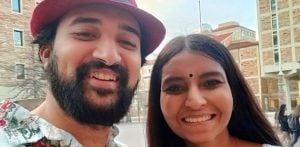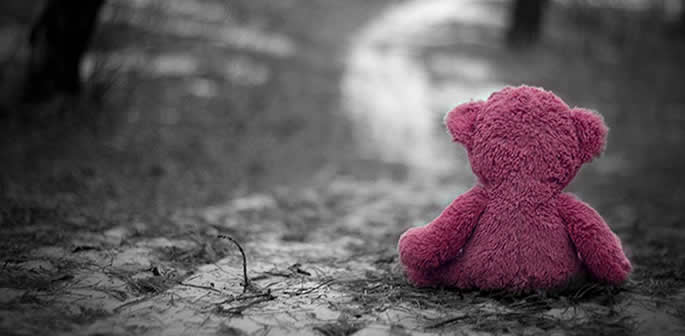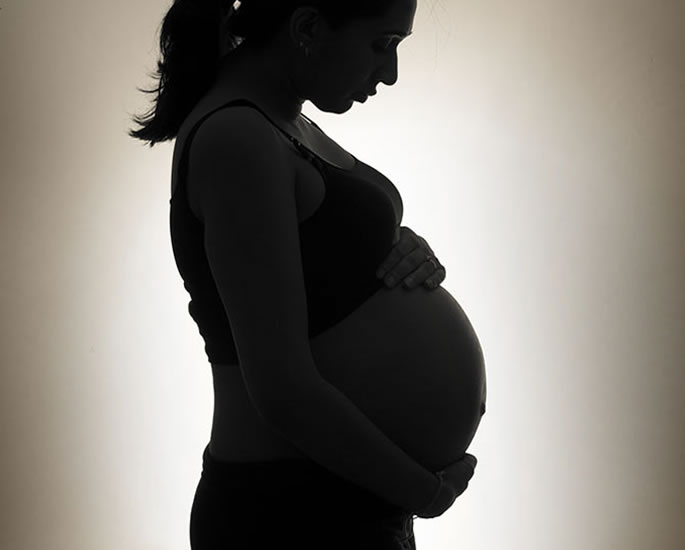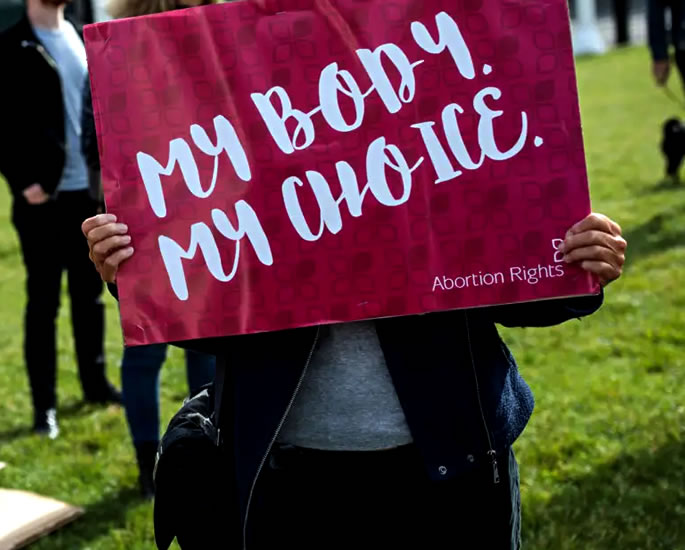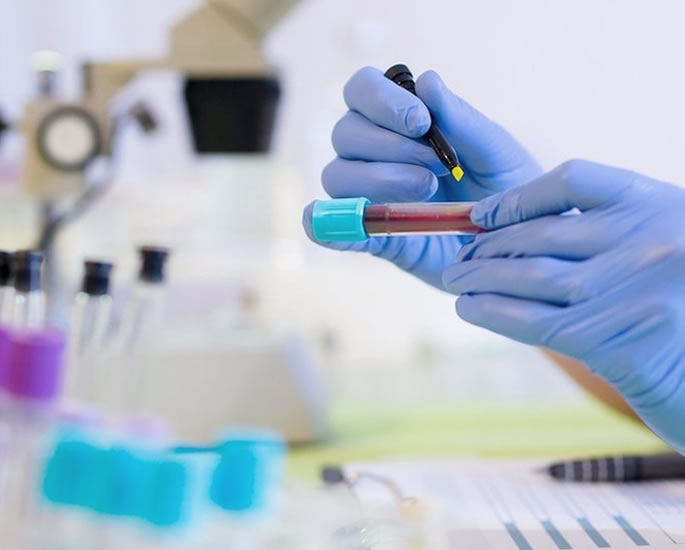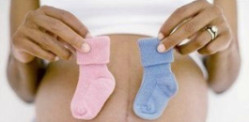"I wouldn’t wish what happened to me on anyone, ever.”
South Asian culture has a reputation for having a societal preference towards males. Therefore, sex selection and abortion are two practices closely related to this ‘desire to have a son’.
With male privilege and female foeticide being an issue for most South Asian countries as highlighted in India.
The issue that currently stands is a trend of sex-selective preferences which has taken a firm rooting in British South Asian culture.
With the issue of sex-selective abortion being a subject of alarm for the government.
DESIblitz takes a closer look at this issue, speaking to women who have suffered through this gendered practice in the UK
Sex-Selective Abortion
Sex-selective abortion is a practice whereby a woman terminates her pregnancy due to gender preference.
Namely aborting a female fetus, with the aim to conceive a male the next time.
It is difficult for government authorities or support organisations to capture accurate data on this subject.
This is because often, the women involved do not state gender as the reason for terminating a pregnancy.
However, the Department of Health and Social Care managed to capture data that confirmed, British Asians as the second largest ethnic group to have abortions in 2017.
In 2017, 78% of women in Britain who had an abortion classed their ethnicities as white with the next largest group being British Asians at 9%.
Speaking to someone who was pressured into a sex-selective abortion, it became apparent that there are varying levels of coercion taking place behind the scenes.
Amrit’s Story*
Amrit, aged 44, tells her story of difficulties and non-acceptance when it comes to having children that are not boys.
“I got married very young, we did back in those days. I hardly knew him. I fell pregnant shortly after we were married. He used to drink a lot.
“He pushed me down the stairs because he didn’t want to have a baby yet…I miscarried after that.”
This classifies as a forced abortion, a male exerting force to cause harm to the mother and fetus to terminate a pregnancy.
Amrit continues to unveil what took place next.
“A few years later I became pregnant again, this time he was happy to keep it. When it came time to find out the gender it was a boy, I was so relieved.
“But, my sister-in-law couldn’t conceive so he and my mother-in-law made me give the baby to my sister-in-law as she was older and I ‘could have more boys later’.
“That was when I began to worry, one baby lost, the other given away. But I was told to make the best of it.”
Amrit became pregnant with her husband one last time:
“I thought maybe this one will change things. We got to the gender scan and it was a girl…He was so angry and I knew it.
“I still remember how hard he clenched his hand when they said it. He didn’t do anything initially but when we got home, he and his mum told me I had to get rid of my baby.
“They said if I didn’t do it they would. I was so frightened I said yes, at the moment.
“The next day I got up and packed a few belongings and went back to my parents’ house and told them everything.
“They tried to make him see sense but he wouldn’t listen.”
Amrit did not abort her child, she instead kept her daughter and divorced her husband.
Reflecting, Amrit says:
“I think there’s not enough attention on this matter, women, girls…they’re just so lost in all this mess.
“In-laws play psychological games and if you have a husband like mine he’ll resort to violence.
“I would say to anyone, if they are in a similar situation, get as far away from it and them as soon as you can. That’s the only way.”
However, the concern still stands that this dangerous practice is taking place in the UK amongst the British Asian population.
Criminalisation of Abortion and Abortion Pills
In March 2017, Labour MP for Hull, Diana Johnson won the right to introduce a Bill that would decriminalise abortions in the UK.
Under the Offences Against the Person Act 1861, a woman’s decision to terminate her own pregnancy is punishable by life in prison.
Although parts of this Act were dissolved with the introduction of the Abortion Act 1967.
Individuals who terminate their pregnancy through the use of medication, often purchased online, would still be subject to this law.
Due to this revelation, Ms Johnson highlighted in Parliament that this is unfair to vulnerable women. Such as those subject to cultural restrictions, would not be able to visit a clinic.
This would leave them with no option other than to order abortion pills online. Ms Johnson pointed out that it seems very severe to punish women for this act as a crime.
When they themselves are in a difficult situation with limited options. As it stands this Act is still active in England and Wales but has widespread support including support from the British Pregnancy Advisory Service (BPAS).
BPAS in a statement regarding sex-selective abortions said:
“The criminalisation of sex-selective abortion does nothing to address these issues, and is, in fact, more likely to expose vulnerable women to the risk of further victimisation.”
It is the hope that once Abortion is wholly decriminalised in the UK then safeguards can be put in place to help and support those who are victims to sex-selective practices in BAME communities.
Particularly the British South Asian communities.
An anecdote that is sure to resonate with many women is one raised by Dr Rebecca Gomperts, the director of Women on web and Women on Waves.
Dr Gompets highlighted the case of a woman of British Islamic background who was forbidden from leaving her house without a chaperone.
She found herself pregnant but not wishing to pursue the pregnancy, the issue for this woman, in particular, was that she was unable to visit an abortion clinic.
Due to her constantly being monitored it made it impossible for her to attend an abortion clinic appointment, making her seek alternate methods, which meant online abortion tablets.
Having tablets delivered to the home, although risky, pose less of a risk than attempting to visit an abortion clinic when you are constantly accompanied by a chaperone.
The cultural boundaries women of British South Asian descent face are still prevalent and in some cases extreme.
As mentioned earlier it’s been difficult for NGOs to capture data on sex-selective abortions as women who visit the clinic do not state gender as the reason for termination as they know that is illegal.
With ordering abortion pills online it would be near impossible to track this information also. The hope is that with the decriminalisation of abortions other safeguards can be put in place.
Women already under duress to have a sex-selective abortion are already unlikely to open up about such an issue due to fear of backlash from family or other community members.
However, when we take into account the issue of criminal offence, it makes attempting to capture such data seem impossible.
Dr Gompets stressed:
“In order to tackle such a complex issue as sex-selective abortion within British South Asian communities, we need to be able to make women feel they can open up safely to medical professionals without fear of prosecution.”
This issue of being unable to visit a clinic means these women turn to online abortion pills, due to the ease of access for the pills.
Which makes capturing data for sex-selective abortions difficult and also means these women are putting themselves at risk for criminal prosecution.
“So due to the accessibility of medication now available online. Women are more than ever before at risk of breaking the law and a few prosecutions have already happened.
“And I wonder if any of us truly believe that these women in such difficult circumstances should be seen as criminals.”
Meena’s Story*
Meena, aged 27, reveals what happened to her after she got married to a man in the UK, with herself being from India.
“My parents were always keen for me to marry abroad. They wanted me to have a ‘better life’, to which I hesitated but agreed.
“I married my husband at the age of 25 after a close family friend did the rishta between the two families.
“I arrived in the UK after getting permission to join him and we lived with his family. His parents and younger sister.”
Meena took time to adjust to the family, whom she found somewhat backward and very orthodox, compared to her family and relatives in India.
“My mother-in-law was very superstitious and had views which not many people talked about anymore in India. This did surprise me thinking that people in the UK must be more Western thinking.”
A year later, Meena fell pregnant and that was when the problems started.
“My mother-in-law immediately began to air her views about the baby being a boy or not. And hinted the importance of her son being a father to a son too.”
When Meena had her first scan, her mother-in-law insisted on going with her. The nurse asked if she wanted to know the sex. Meena was not bothered but her mother-in-law wanted to know.
It was revealed it was a girl. This changed everything.
“I thought something happened to her [mother-in-law]. She got extremely upset and started to act very oddly towards me. As if I had failed everyone.
“My husband was there too but did not say anything either. The car journey home was very silent.
“Once we got back home. They both told me that I cannot keep the baby. I started to cry and could not believe what I was hearing.”
Meena’s mother-in-law said that I had to ‘get it seen to discreetly’ and that now I could get it even done online by ordering abortion pills if need be. Either way, Meena could not have the child as it was a girl.
“I was shocked, very hurt and devastated.
“Even more, so, that she [mother-in-law] even knew about the whole online thing. But I know she spends a lot of time with a woman’s community group, who probably told her.
“I argued to keep the baby and told them I will get pregnant again and it could be a boy next time. But both my husband and mother-in-law would not have it.”
“My father-in-law tried to take my side but was told to stay out of it. My sister-in-law did her own thing and didn’t care. We never got on really.”
Not having anyone in the UK, Meena felt very alone and isolated. She could not tell her parents in India because they were old and she did not want to shock them with any bad news. They were just happy she got married.
Meena was left with little choice and was completely coerced into having the abortion due to the sex of her baby. She had to attend a private clinic and was taken to it by her husband, who also paid for it.
Speaking about the experience, Meena says:
“To this day, I am still sad. I often wonder what my baby girl would’ve been like now and how old she would’ve been.
“I don’t show it to them [in-laws] because they don’t even think anything of it.
“Since, the forced loss of my daughter, I’ve had two boys and as much as I love them, they can never ever fill that void and what I went through, just because I was pregnant with a girl.”
How NIPT affects Abortions
Non-invasive prenatal testing (NIPT) has been made available both privately and through the NHS.
NIPT is the practice where blood is taken from the mother and analysis is done of the blood to detect any early abnormalities in the baby.
This genetic test analyses the baby’s DNA fragments that are circulating in the mother’s bloodstream to look for common chromosomal issues.
NIPT allows for early-stage testing to get insights into the health, development, and gender of a fetus.
This has caused a widespread concern amongst multiple sects of British society, especially, when it comes to South Asian communities using the test for sex selection means.
Labour MP Naz Shah has also voiced her worries. Ms Shah commented, on how this test was, “morally wrong” to gain information which could lead to abortions based on gender preference.
Ms Shah highlighted, that South Asian communities here in Britain still have a bias towards males in the culture.
Emphasising her concerns that the NIPT could be abused, instead of being used to flag health issues with a fetus, which was its primary function.
Ms Shah worries, it will instead be used as an early gender test to play into sex-selective abortions.
Ms Shah said:
“NIPT screenings should be used for their intended purpose, to screen for serious conditions and Down’s syndrome.”
When discussing the practice of sex-selective abortions within the British South Asian community Ms Shah said:
“The government needs to look into this exploitative practice and enforce appropriate restrictions.”
Zainab’s Story*
We spoke to a 34-year-old British South Asian woman Zainab about the subject of NIPT.
Zainab is divorced with no children and has strong views on the potential abuse of NIPT:
“I think it’s disgusting. I get that parents want to know if their baby is healthy or not, that’s just parental concern.
“But what I don’t agree with is disclosing the gender.
“I had an arranged marriage, my dad had a family friend back in Pakistan.
“I was wary but we skyped and chatted and got to know one another and I thought it could work so I did it. I was 27 and felt a bit pressured.”
Zainab explains how her ex-husband moved to the UK and got a job. They got their own home and she felt, “happy enough.”
Then she fell pregnant.
“I was so happy, nervous but happy. I wanted to tell my husband as soon as possible.”
Zainab recalls rushing home with the news and while she was smiling and gushing her husband sat solemnly.
“I thought maybe he was processing. We had been married 2 years at this point though, it didn’t seem that shocking to be happening, at least not to me.
“I remember he got up, having not said a word.
“He looked at me and said, ‘we have a boy first then whatever else afterwards.’
“I was so stunned. A million thoughts went rushing in my head and I didn’t know what to say or think or do. I had no control over what we would have. All I cared about was if it was healthy.”
Zainab remembers her husband phoning his mother in Pakistan to speak to ‘Holy men’ to conduct prayers and make concoctions for Zainab to drink in order for their first born to be a boy.
“Instead of caring about what I’m eating, how much I’m sleeping, all he could think about was having a boy.”
“So he could prove to all his family what a man he was by having a boy.”
Time then ticked by and it reached her 18-week scan where Zainab could find out the sex of her baby.
“I remember when the sonographer said it was a girl. My stomach churned, and I asked how certain she was she said it was almost always accurate.
“He waited for me to clean up, we got in the car and he told me we had to go to Pakistan to ‘sort this out’
“I wasn’t sure if he meant me having to visit one of these weird, ‘Holy Men’, his mother did or what. But out of fear and confusion, I said yes.”
Zainab travelled to Pakistan with her husband and upon arriving she realised that the intention was for her to have an abortion.
“I was against having an abortion, this was my baby.
“I said he could divorce me I wouldn’t care I could raise the baby myself.
“But they didn’t want the ‘shame’ in their family. They had my passport and wouldn’t let me call home…I had no choice.”
After the abortion, Zainab came back home and immediately sought to get a divorce, it was bitter and long but they are now separated.
“A lot of my aunties were confused why I divorced my husband, they said I should get IVF so I can choose a boy for the first one.
“That’s what, ‘this science stuff was for’. But I couldn’t live with someone who thought like that and did that to me.”
“This NIPT stuff sounds great as a concept, but in the hands of people from our culture where males and men are everything, it could be so dangerous.”
“I wouldn’t wish what happened to me on anyone, ever.”
The fact that there are discussions taking place through non-profit organisations and actions taking place in parliament, is reassuring but still not enough.
Sex-selective abortions are an abhorrent practice and need to be eradicated.
There are still vulnerable British Asian women being subjected to this practice and it is still a largely under-reported issue. We would encourage anyone facing such issues to contact a doctor, family member or a non-profit organisation for help.









